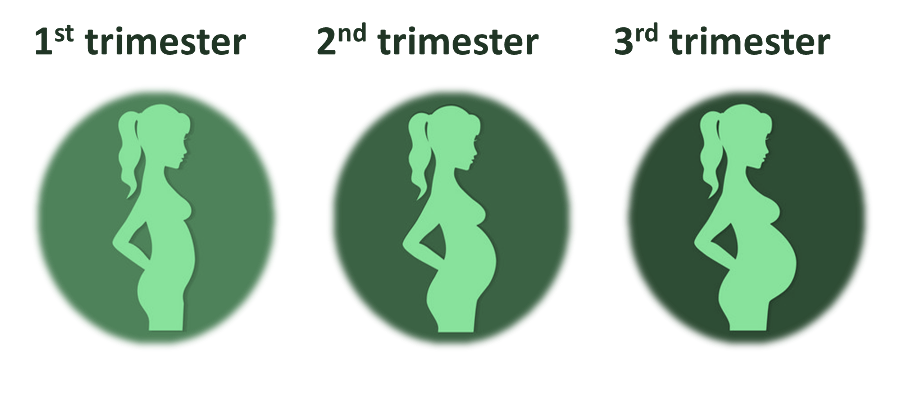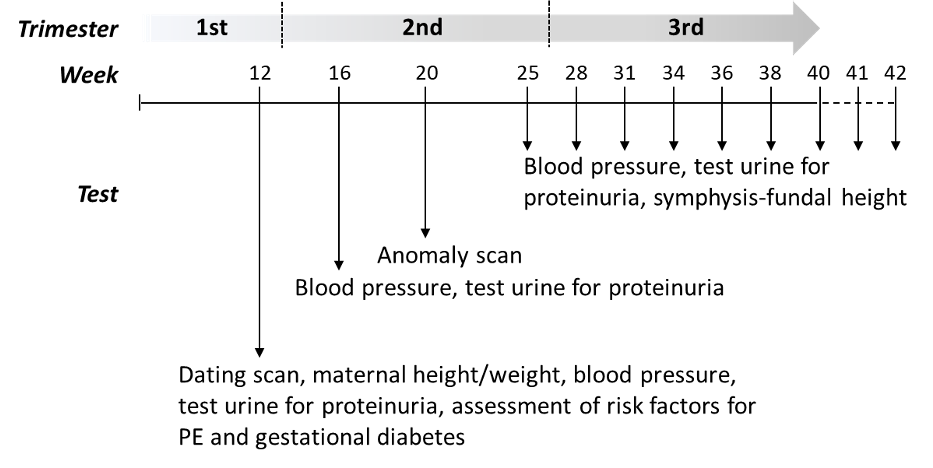It takes three to tango:
the mum!
26 Mar 2021
(Press ? for help, Esc for over viewspace and p for next and previous slide)
Mum is pregnant!
- The pregnancy will last approximately 9 months, which are divided into three 3-month periods, called TRIMESTERS.
- The baby will grow in mum’s uterus, in the lower part of her abdomen.
- During pregnancy, her uterus expands and the walls of the uterus thicken to make room and support the baby.
![trimester]()
First trimester (1-3 months)
- Mum might feel unwell some days, but it’s all normal: her body is adapting and changing in order to support the baby’s growth.
- It is very important that mum attends all the recommended antenatal visits:
![chart]()
Test for mum and the baby
- Mum’s belly will be measured to check that the baby is growing as expected.
- Mum’s blood pressure will be measured to make sure it’s not too high or now.
- Mum’s pee will be tested to check that there are no dangerous substances in there.
- A special machine, called Ultrasound Scanner, will be used to see the baby inside mum’s belly and to measure his/her size.
Second trimester (4-6 months)
- Mum’s belly is starting to grow as the baby is getting bigger.
- The baby is also starting to move.
- It’s important to pay attention to the baby’s movements.
- If they decrease or change, mum should get in touch with the midwives because the baby might be unwell.
Third trimester (7-9 months)
- Baby is maturing and getting ready to be born.
- It is fairly common for a baby to be positioned head-up in mum’s uterus, with the feet pointed towards the birth canal.
- At the end of pregnancy he/she will automatically turn into a head-down position to prepare for birth.
- At birth, the baby is about 45-55cm long and weighs about 2.5-4.5kg.
Good nutrition and habits (1/2)
- Mum should have a healthy diet to support herself and the baby.
- Food should be prepared in a clean environment; vegetables and fruits should be washed carefully; meat, fish and eggs should be cooked well.
- Midwife/doctor’s recommendations should be followed regarding supplements in pregnancy.
- Mum should keep up her normal daily physical activity or exercise (e.g. sport, running, yoga, dancing, walking) for as long as she feels comfortable, but she should not exhaust herself: exercise is not dangerous for the baby!
Good nutrition and habits (2/2)
- She should eat a variety of different foods every day to provide the right balance of nutrients that she and the baby need, including:
- at least 5 portions of a variety of fruit and vegetables.
- starchy foods (bread, potatoes, breakfast cereals, rice, pasta, noodles, oats) as they are an important source of energy.
- protein-rich foods (beans, pulses, fish, eggs, meat, poultry, nuts).
- dairy foods (milk, cheese and yoghurt) as they contain calcium and other important nutrients.
What food and habits to avoid during pregnancy
- Mum should avoid foods that are high in fat, sugar or both (all spreading fats such as butter, oils, salad dressings, cream, chocolate and sweets, crisps, fizzy drinks)
- She shouldn’t eat raw fish (such as in sushi)
- She should avoid drinking coffee and alcohol, smoking and using illicit drugs for the sake of her own and the baby’s health
References
Quiz
Thank you for visiting us
- Please give us some feedback through a short survey. This will help us to develop our event further.
- Please see this if you’d like to know how it was made.

